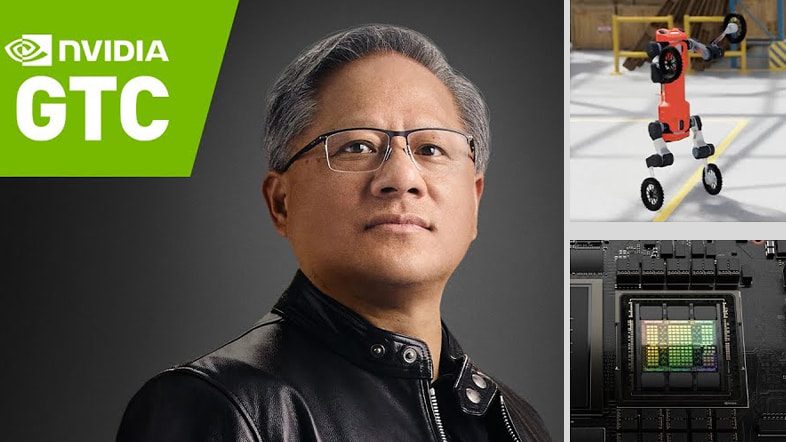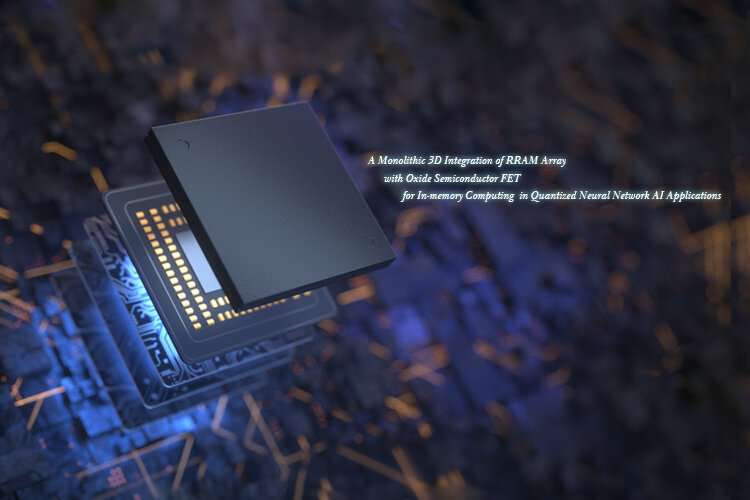Nvidia GTC 2024 has concluded after an eventful few days packed with exciting AI updates.
The event kicked off with a captivating two-hour keynote by Nvidia CEO Jensen Huang, covering a wide range of topics including the future of AI, groundbreaking hardware advancements, and even featured dancing robots.
Throughout the event, attendees had the opportunity to explore Nvidia’s cutting-edge headquarters and gain insight into the latest innovations soon to hit the market. For those who may have missed any of the action, we’ve compiled a recap of the key highlights from the show below:
- “People think we make GPUs, but GPUs don’t look the way they used to” — Jensen Huang highlights Blackwell as the driving force behind the new era of AI.
- “The world’s most powerful chip” — Nvidia introduces Blackwell, poised to revolutionize the next generation of AI.
- Nvidia unveils its ambitious project to virtually recreate the entire planet, aiming to leverage its digital twin technology for advanced weather forecasting.
- Project GROOT by Nvidia brings humanity closer to the era of human-robot collaboration.
- Nvidia announces its collaboration with Apple Vision Pro, integrating it into the Omniverse platform for enhanced capabilities.
These updates signify Nvidia’s ongoing commitment to pushing the boundaries of AI technology and shaping the future of innovation.
18 March 2024 at 18:51
Good morning from San Jose! Day one of Nvidia GTC is about to begin, and anticipation is high for the keynote from Nvidia CEO and renowned leather jacket enthusiast, Jensen Huang. Stay tuned as we uncover the latest innovations and announcements from the conference.

It’s a fresh and sunny day here in San Jose – we’ve just been to the convention center to pick up our badge (and multiple drinks tokens for some reason) and it’s already packed with people – should be a good day!
Ironically, it’s quite a quiet start to the day, with Nvidia CEO Jensen Huang set to take to the stage for his keynote at 1pm local time.
19 March 2024 at 00:53
Well, we’re in and seated at the keynote…45 minutes before the start, and it’s completely heaving! This is the hottest ticket here in San Jose and the tech world as a whole…
This also means the Wi-Fi is very sketchy at best – so bear with us while we get settled.
In case you were wondering, the tagline for Nvidia GTC 2024 is “The Conference for the Era of AI”…
An introductory video runs us through some of the possibilities AI can bring, from weather forecasting to healthcare, shows some of the amazing growth Nvidia has had in recent months
Breathe a sigh of relief everyone – he is indeed wearing his now iconic leather jacket!.
“At no conference in the world is there such a diverse collection of researchers,” he notes – there’s a healthy amount of life sciences, healthcare, retail, logistics companies and so much more. $100trillion of the world’s companies are here at GTC he says.
“There’s definitely something going on,” he says, “the computer is the most fundamental part of society today.”
“It is a brand new category,” he notes, “it’s unlike anything we’ve ever done before.”
“A new industry has emerged.”

Everything we’re going to see today is generated and simulated by Nvidia’s own systems, he notes.
This is kicked off with a video showig off designs from Adobe, coding from Isaac, PhysX, and animation from Warp – all running on Nvidia.
“We’e reached a tipping point,” he says, “We need a new way of computing…accelerated computing is a massive speeding up.”
Simulations can help drive up the scale of computing, he notes, with digital twins allowing for much more flexibility and efficiency.
“But to do that, we need to accelerate an entire industry,” Huang notes.
All of these partners, and many others, are demanding much more power and efficiency, he notes – so what can Nvidia do?
Following Selene and Eos, the company is now working on the next step – “we have a long way to go, we need larger models,” Huang notes.
“I’d like to introduce you to a very big GPU, he teases…
Say hello to Blackwell – “the engine of the new industrial revolution”.
Twice the size of Hopper, the “AI superchip”, it fits 208 billion transistors, putting two dies together to think they’re one chip. “It’s just one giant chip.”
“People think we make GPUs, but GPUs don’t look the way they used to,” Huang notes.
Huang talks about Blackwell like a proud parent – it’s clear this is a huge upgrade for Nvidia, with some frankly staggering numbers behind it.
But wait – there’s more!

Now turning our attention to healthcare, Huang emphasizes the extensive work already undertaken by the company, spanning from imaging to genomics and drug discovery.
In a significant stride forward, Nvidia is now providing models for researchers globally, streamlining much of the intricate groundwork and accelerating drug discovery processes to unprecedented speeds.

To enhance the reception and functionality of software, Nvidia introduces a new service called NIM, short for Nvidia Inference Microservice.
NIM consolidates models and dependencies into a cohesive package, tailored to optimize compatibility with your specific stack, and integrated with user-friendly APIs.
Accessible via the new Nvidia.ai.com hub, NIMs can be easily downloaded and deployed across various platforms, serving as a centralized solution for all AI software requirements.
“This is the future of software development,” remarks Huang, emphasizing the shift towards assembling multiple AI components.
Huang presents a demonstration of a virtual warehouse integrating robotics with human systems, illustrating the potential for enhanced productivity and efficiency.
The showcase offers a glimpse into the future of industries, albeit with a slightly unsettling undertone. Notably, Nvidia has secured a partnership with industrial leader Siemens to deploy this technology.
While discussions about the AI future often evoke images of Terminator-like robots threatening humanity, the actual landscape is often more grounded.
Introducing a new SDK called Isaac Perceptor, Nvidia aims to enhance the capabilities of robotic arms, also known as “manipulators,” and vehicles, providing them with increased insight and intelligence.
Article source: Nvidia GTC 2024 — all the updates as it happened | TechRadar

